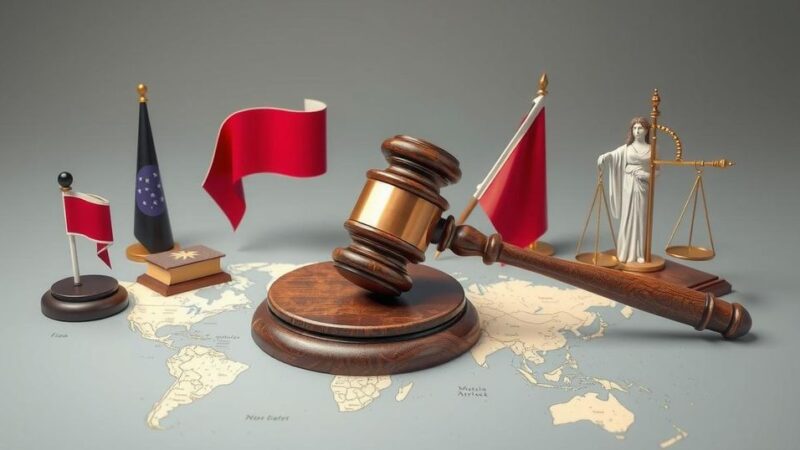Bangladesh has recalled five envoys, including the Indian High Commissioner, following Prime Minister Sheikh Hasina’s resignation amidst violent protests. This diplomatic move is a direct response to ongoing political turmoil that has resulted in hundreds of casualties and strained relations with India.
In a significant diplomatic overhaul, Bangladesh has suddenly recalled five of its envoys, including the Indian High Commissioner Mustafizur Rahman. This decision follows the resignation of Prime Minister Sheikh Hasina after a series of violent protests, with her subsequently fleeing to India on August 5. The Ministry of Foreign Affairs has instructed the ambassadors to Brussels, Canberra, Lisbon, New Delhi, and the permanent mission to the United Nations in New York to return to Dhaka immediately, as disclosed by an anonymous official. They have been ordered to relinquish their duties without any additional details provided regarding the reason behind the recalls. This rapid shift in diplomatic personnel comes closely on the heels of Saida Muna Tasneem’s recall from her position as the ambassador to the United Kingdom. The political landscape in Bangladesh has been tumultuous, characterized by widespread civil unrest that resulted in over 700 fatalities linked to the protests that led to the Prime Minister’s departure. The demonstrators pushed for a change of government amid long-held discontent over political conditions. Following these events, relations between Bangladesh and India have found themselves in jeopardy due to the extensive 4,000-kilometer border the two countries share as well as overlapping maritime territories in the Bay of Bengal. There are additional concerns regarding the safety of minority groups within Bangladesh, particularly the Hindu community, who have reported violence presumably motivated by religious intolerance, although authorities have stated that such violence is politically driven.
The political crisis in Bangladesh has illuminated longstanding issues concerning governance, public safety, and minority rights. With Sheikh Hasina’s government forced from power amidst violent protests, the event has raised questions about the stability of Bangladeshi politics and its implications for diplomatic relations, especially with neighboring India. The heavy toll on human life during the protests, coupled with allegations of targeted violence against minority populations, highlights the societal fractures that have emerged in recent times. As Bangladesh navigates through this crisis, its diplomatic relations and internal socio-political dynamics are under intense scrutiny.
In conclusion, the recent diplomatic reshuffle by Bangladesh reflects a critical juncture in its political landscape following significant unrest and governmental changes. The recall of ambassadors alongside the rise in political strife illustrates the challenges facing Bangladesh in maintaining both internal harmony and foreign relations, particularly with India. The affects of these events on minority communities and the broader societal ramifications remain to be seen as the nation grapples with its new political reality.
Original Source: m.economictimes.com







